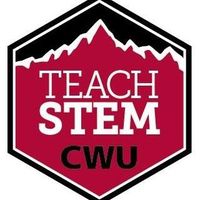In the winter of 2024, the Pacific Education Institute (PEI) joined forces with Central Washington University’s (CWU) STEM Leadership Master’s program, embarking on an unprecedented collaboration. Dr. Emilie Hancock and Dr. Mark Oursland of CWU, alongside PEI Associate Director Megan Rivard, spearheaded a project aimed at revolutionizing STEM education through immersive place-based learning experiences.
This visionary partnership was born from a shared commitment to advancing STEM education in Washington state. While PEI sought to expand the network of place-based educators across the state, CWU Teach STEM aimed to equip educators with cutting-edge practices in STEM education. These synergistic objectives set the stage for a dynamic collaboration with wide-ranging benefits.
The collaboration between PEI and CWU culminated in the design of a groundbreaking course titled “STEM Networking Leadership Seminar.” Building on past successes, this course integrated field experiences with community partners.
In its revamped format, PEI identified FieldSTEM Teacher Leaders renowned for their expertise in place-based education and deep community connections. Meanwhile, CWU focused on enlisting educators eager to explore innovative teaching methodologies.
In the spring of 2024, CWU’s STEM Leadership Master’s program unveiled the course, inviting educators to immerse themselves in the realm of place-based learning. Participants engaged in illuminating interviews with FieldSTEM Teacher Leaders, exploring projects that seamlessly intertwined STEM coursework with real-world applications. Facilitated by PEI and Dr. Oursland, follow-up discussions fostered a dynamic exchange of ideas and insights.
Sarah Wiesner was one of the FieldSTEM Teacher Leaders interviewed. Weisner teaches Ecology of the Okanogan, a dual credit class for Environmental Studies 201 and 202, at Okanogan High School through Central Washington University’s College in the High School Program. “When you’re the only one teaching a topic, it’s nice to have a community partner to plan with and make sure things are relevant,” Weisner told one of the participants.
“Networking with community partnerships that have in-depth backgrounds on certain topics is key. I become a facilitator, bringing an expert to the students, who in turn brings the most knowledge to the kids.” — Okanogan High School / Central Washington Univerisity College High School in the Classroom teacher Sarah Wiesner
Empowered and inspired, participants emerged from the course equipped with a profound understanding of teaching methodologies that fostered engagement, career readiness, and local relevance. “Networking with community partnerships that have in-depth backgrounds on certain topics is key. I become a facilitator, bringing an expert to the students, who in turn brings the most knowledge to the kids,” Weisner shared.
Armed with newfound knowledge, educators departed the course with a renewed passion to align their curricula with local issues. This transformative partnership between PEI and CWU has not only elevated the standard of STEM education in Washington state but has also fostered a deeper connection between education and community. Through immersive place-based learning experiences, students will not only acquire knowledge but will also forge a deeper connection to their surroundings and future careers.
One participant interviewed PEI’s 2022 FieldSTEM Teacher of the Year Dale Sweet, a middle school science teacher at Walter Strom Middle School in the Cle Elum – Roslyn School District. Sweet shared the importance of creating the projects and objectives first, then reaching out to partners that would fit your project instead of creating partners and then trying to create the project around the relationship. “If you are having trouble with thinking of a project, think of a concept and then consider how it could be something for students to do outside,” Sweet recommended. “Then look for a project or service that fits with what you have created
Indeed, collaboration lies at the heart of innovation in education. FieldSTEM Teacher Leader Ryan Campanella described making cold calls and sending emails to set up new community partnerships. “Don’t be afraid to reach out,” he said. “Most community partners are more than willing to collaborate for students.”
Weisner emphasized the benefits of working with community partners. “[They] can help to build a diverse workforce,” she said. “Prioritize collaborating with rural, low-income, and Tribal communities to promote inclusive learning models and ensure equal opportunities.”
By harnessing the collective expertise of educators and community partners, this groundbreaking collaboration has unlocked a myriad of possibilities for STEM education, paving the way for a brighter future.
